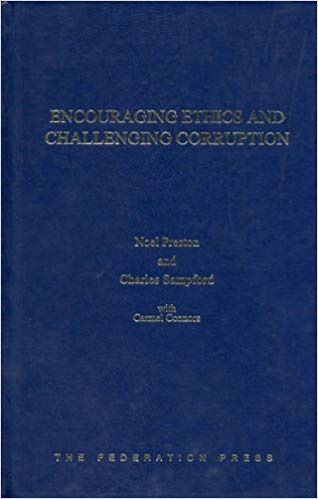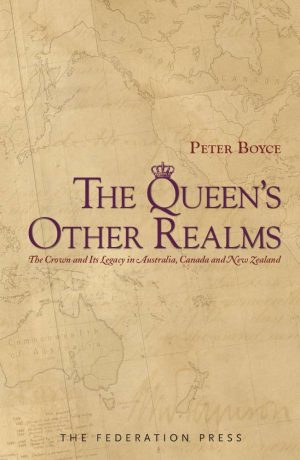Encouraging Ethics and Preventing Corruption brings theory and practice together in addressing the question: How are we to be ethical in public life and through public institutions?
It is a major contribution to public sector ethics within Australia and internationally because it provides an exhaustive analysis of reform across a decade in one jurisdiction, Queensland, and then proceeds to itemise a best practice integrity system or ethics regime. Drawing on the extensive research of two of Australia’s leading practical ethicists, this text is essential reading for all students and practitioners of applied and professional ethics in the public sphere.
Part A of the text provides a preferred theoretical and conceptual framework which both justifies and guides the development of a public sector ethics regime.
Part B examines the place of the individual within a world of institutional ethics.
Part C outlines the Queensland governance reforms introduced since 1989 following the Fitzgerald Inquiry which exposed corruption in the police and ministry. The final chapter, the ‘Epilogue’, gathers the insights of earlier chapters and suggests a more explicitly ethics-centred approach to governance reform that may take us ‘beyond best practice’.
Clearly, while it is the Australian context we have in mind, we are confident that this is a text which addresses the quest for integrity and ethics in government wherever society is committed to social and liberal democratic ideals.
Two of Australia’s leading practical ethicists, … drawing on a decade of personal experience in researching, assisting and advising the Queensland Government on initiatives to encourage ethics and prevent corruption, set forth their blueprint for a best practice integrity system or “ethics regime”.
The book is divided into three parts: a theoretical and conceptual framework for an ethics regime; an examination of the place of the individual within a world of institutional ethics; and an outline of the Queensland governance reforms following the Fitzgerald Inquiry.
This is essential reading for anyone concerned about integrity and ethics in any institution, private or public.
National Institute for Governance Newsletter, No 2(4), May 2003
A welcome addition to the Australian literature … brings together a critical history of the post-Fitzgerald reforms to Queensland governance with a more general analysis of design principles relevant to public-sector ethics. The account of Queensland is used as something of a test case …
The theme is that ethics can and should be made the heart of governance reform, if the reforming elite has the will to extend public accountability to cover compliance with legitimate democratic values. … The argument in support of this case is … something called ‘institutional ethics’ [which] is contrasted with ‘individual ethics’ … The challenge then becomes how to institutionalise character.
The merit of an institutionalised approach is that it sees the problem in systemic terms with individuals repsonding to institutional cues about what is proper according to public-sector context rather than simply their private conscience. … Codes of conduct emerge as favoured institutions but the book has no hard evidence on the power of codes to institutionalise official conduct. The final chapter sensibly favours as many checks and balances as one can imagine, again placing ‘virtue’ in a solid institutional setting. …
John Uhr, Australian Journal of Political Science, Vol 38(3), November 2003




